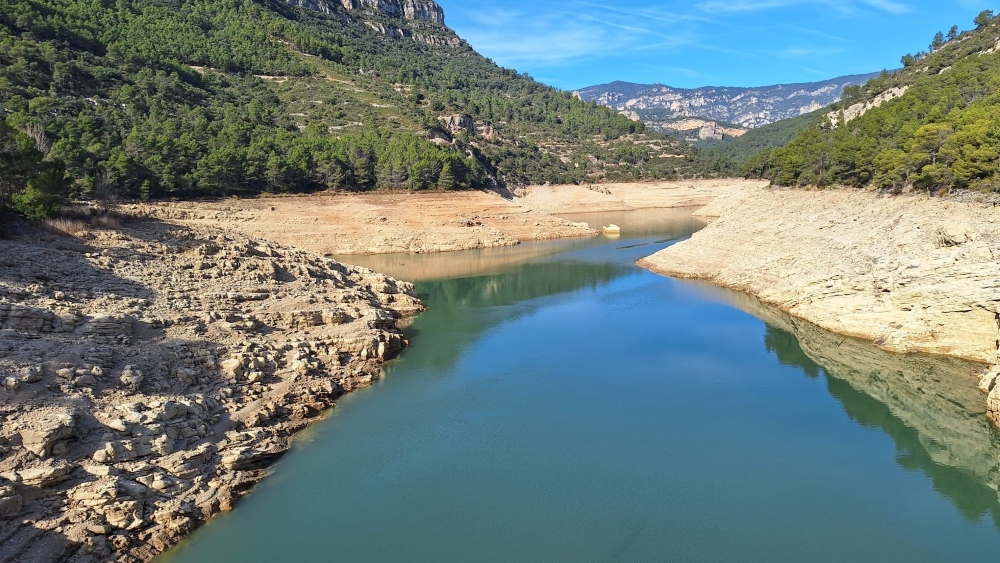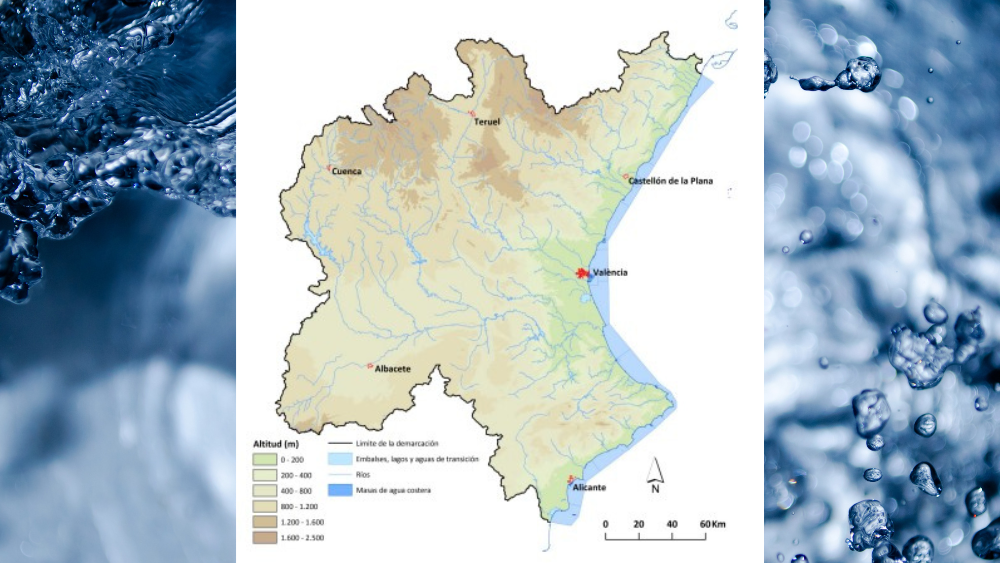CHJ DECLARES EXCEPTIONAL DROUGHT SITUATION IN VALENCIAN REGION
The continued absence of any meaningful precipitation is having an effect on water levels in the basin.

On Tuesday, the Confederación Hidrográfica del Júcar (CHJ) issued a statement to declare an exceptional situation due to extraordinary drought conditions through its area of responsibility due to the continued absence of any meaningful precipitation. The declaration has been made so that the CHJ can request that the Spanish Government include it in the legal framework which allows such bodies to adopt extraordinary measures in relation to the use of the public distribution network.
The CHJ is the regulatory body for the hydrological networks of a drainage basin in which the Júcar is the main river. This basin includes almost all the Comunidad Valenciana, the eastern areas of Castilla-La Mancha and the extreme south area of Aragón around Teruel.
According to data, 2023-2024 has been the driest period for over three decades with an average precipitation accumulation of 115mm compared by a normal average of 216mm over a similar period. This lack of rain means that less water is draining into the rivers, the underground levels are decreasing and levels in the reservoirs are falling which means that, despite levels actually being above over the average of the last 10, 20 and 30 years, some systems, namely Palancia-Los Valles, Cenia-Maestrazgo and the Marina Alta, are approaching emergency scenarios due to the scarcity of water.
In response to this situation, the CHJ has decided to declare an exceptional drought situation which can be made in the face of a prolonged drought and the potential for water shortages. Whilst the Palancia-Los Valles has been in such a situation since the end of last year, several more systems are now approaching pre-alert levels and consequently the CHJ have opted to make the announcement.
This decision also anticipates potential problem that may arise in systems such as Mijares-Plana de Castellón, Serpis, La Marina Baja and Vinalopó-Alacantí since the next irrigation season is about to begin. The statement says that “these systems are on pre-alert due to water scarcity and, if there is no rainfall, they will predictably go into alert during the irrigation campaign.”

With regards to the potential of restrictions, the CHJ statement assured the public that they are applied automatically due to this declaration and would be based on the analysis of specific drought episodes and specific exploitation systems. Possible agricultural restrictions for the forthcoming irrigation period will be decided in May. In addition, different monitoring, control and management measures have already been implemented in some areas, such as Palancia-Los Valles and Cenia-Maestrazgo to address that specific situation.
Regarding urban supply, the CHJ does foresee any immediate problems and guarantee of supply is a priority. However, the statement has highlighted the importance of municipalities having an Emergency Plan against drought conditions and for those who don’t have such documentation to keep track of the sources to identify and anticipate possible supply issues. It also urges local administrations to carry out awareness campaigns aimed at their populations to promote daily water savings. In addition, on Friday 12th April, the CHJ will be organizing an information day for local councils at its headquarters in Valencia.
Finally, the statement assures that the current exceptional situation will only end with the arrival of prolonged rainfall which fills the reservoirs, recharges the aquifers, and recovers the underground sources to the rivers: “When the drought and scarcity indicators return to normal values, we will be able to abandon this situation of extraordinary drought. In systems with smaller reservoirs, recovery could come with an intense episode of rain; however, interannual regulation reservoirs would require continuous rainfall over time”.





